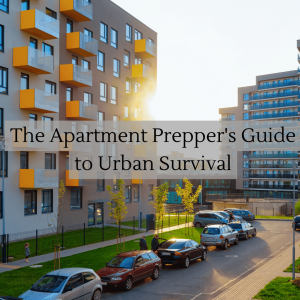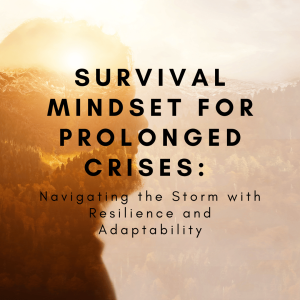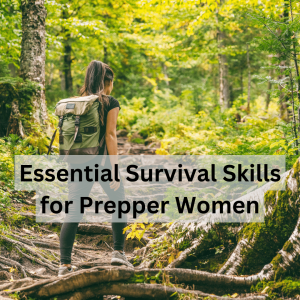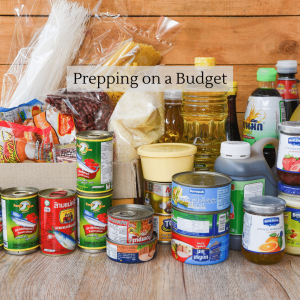In times of instability and chaos it becomes crucial to prioritize the safety and security of our homes and loved ones. Whether it’s a natural disaster, civil unrest, or any other crisis, taking proactive steps to secure your home can provide peace of mind and potentially save lives. In this article, we will explore some essential measures that preppers can take to ensure the security of their homes during a crisis.
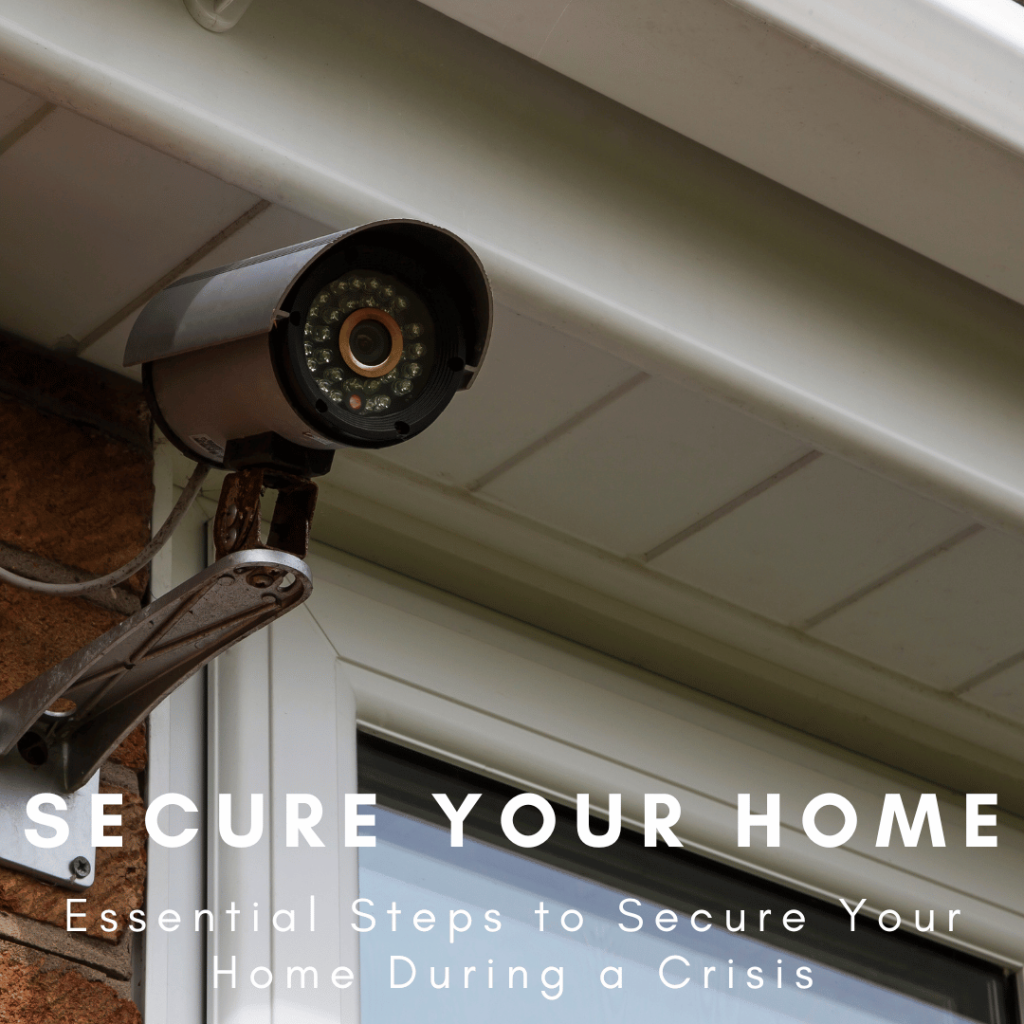
Secure Your Home In 8 Steps:
- Develop a Comprehensive Emergency Plan: The first step towards securing your home during a crisis is to create a well-thought-out emergency plan. Involve your family members in the planning process and identify potential risks and escape routes. Designate meeting points and establish clear communication methods to stay connected during emergencies. Regularly review and update your plan to account for any changes in circumstances.
- Reinforce Entry Points: Strengthening the entry points of your home is an effective way to deter unwanted intruders. Install solid core or metal doors, reinforce door frames with heavy-duty strike plates, and use high-quality deadbolt locks. Consider adding security film to windows to make them more resistant to breakage. Install window locks and reinforce glass doors with shatter-resistant film or security bars.
- Enhance Outdoor Lighting: Illuminating the exterior of your home can significantly improve its security, especially during a crisis. Install motion-activated lights around entry points, driveways, and dark corners. Well-lit areas serve as a deterrent to potential intruders and also provide better visibility for you and your neighbors. Solar-powered lights are an excellent option for prolonged power outages.
- Install a Security System: Investing in a reliable security system is an essential part of securing your home. Choose a system that suits your needs, including door and window sensors, motion detectors, and security cameras. Ensure your system has battery backup capabilities or consider a solar-powered solution to maintain functionality during power disruptions. Display signs and stickers indicating the presence of a security system as a deterrent.
- Fortify Your Perimeter: Create a strong perimeter defense by installing fences or walls around your property. Choose sturdy materials that are difficult to breach, and consider adding barbed wire or anti-climbing measures to deter trespassers. Strategically place thorny plants or shrubs near windows and entry points to create natural barriers.
- Stock Emergency Supplies: During a crisis, access to basic necessities may become limited. Prepare an emergency supply kit containing essential items such as food, water, medication, first aid supplies, flashlights, batteries, and a battery-powered radio. Store these supplies in a secure location that is easily accessible in case of an emergency.
- Establish a Neighborhood Watch: Building a strong community network is vital for home security. Get to know your neighbors and establish a neighborhood watch program. Encourage regular communication, share information about potential risks, and look out for one another’s properties. Collaborating with your community enhances security and fosters a sense of unity during challenging times.
- Stay Informed: Stay updated on local news, weather alerts, and emergency information. Install reliable mobile applications or invest in a battery-powered radio to stay informed during power outages. Regularly monitor official websites, social media channels, and community forums for real-time updates and instructions from local authorities.
Securing your home during a crisis requires a proactive and comprehensive approach. By implementing the measures mentioned above, you can significantly enhance the safety and security of your household. Remember, preparation is key, and investing time and effort into securing your home will provide you with the peace of mind necessary to face any crisis that may arise. Stay vigilant, adapt your plans as needed, and prioritize the well-being of your loved ones and yourself.
